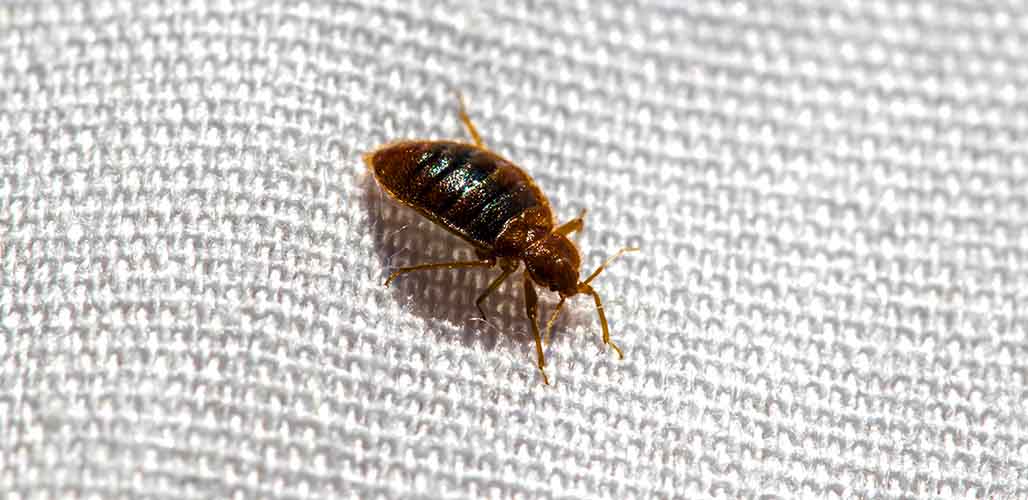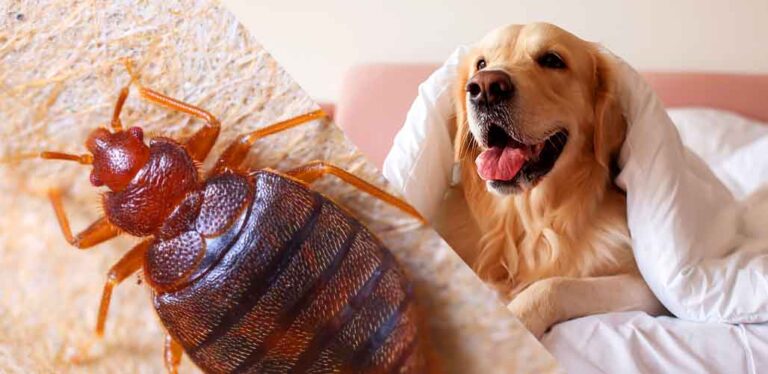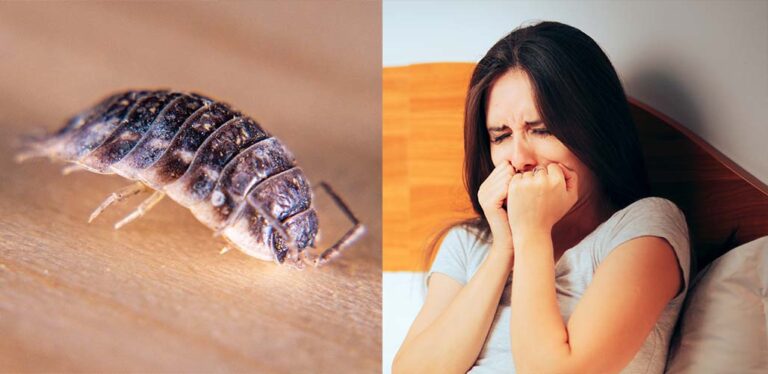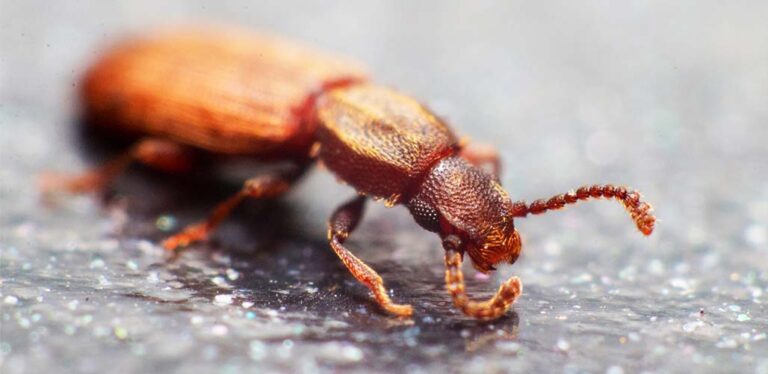Can You Live With Bed Bugs?
Can you live with bed bugs? I can recall my parents saying, “Good night, sleep tight, don’t let the bed bugs bite!” But although this is a cute little rhyme, there is nothing cute about bed bugs. These creepy little pests live in your bed, feed on your blood while you are sleeping, and can cause significant stress and anxiety. If you wake up and find bites on your body, it could be a sign you have bed bugs. Today, I’ll explain how these pests come into your home and what you can do to eliminate them, so you can start sleeping better again.
Contents
- What are bed bugs?
- How do I know if I have an infestation?
- Can I just live with bed bugs?
- How they get into your home
- Why do hotels have bed bugs?
- Recognising bed bug bites
- Getting rid of bed bugs
What Are Bed Bugs?
The scientific name for these pests is cimex lectularius. These little insects have a habit of taking up refuge in beds, relying on the blood of sleeping humans as their food source. They are oval-shaped, measuring about 1mm to 7mm in length. An unfed bed bug is flat and mahogany colored, turning red-brown, swollen, and elongated after feeding. Gross, right!
You can find bed bugs in areas where people gather, like schools, hotels, public transportation and retail stores. They are renowned hitchhikers allowing them to travel great distances and can latch onto items like suitcases and clothes, which is why the spread of bed bugs occurs so easily.
How to Tell if You Have a Bed Bug Infestation in the Home
Bed bugs are tiny and can be challenging to spot at first. But there are a few telltale signs that these pests have taken up residence in your bed and home. You can zoom in by using a flashlight and magnifying glass. Evidence includes:
- Shed skins or black droppings on the bed mattress and sheets
- Tiny bloodstains on pillowcases and sheets
- Bites found on your body when you wake up
- A foul, musty smell that is not dissimilar to a locker room smell.
You can also check the furniture near your bed and the curtains, along with every crack and crevice, as bed bugs like to hide eight to ten feet from where their hosts sleep.
Can I Just Live With Bed Bugs?
It’s not a great idea to leave bed bugs alone if you’ve noticed signs of an infestation. Firstly, it’s not very pleasant to have a pest infestation, and these things can quickly grow out of control. But, despite their tiny size, bed bugs can cause a surprisingly large amount of trouble.
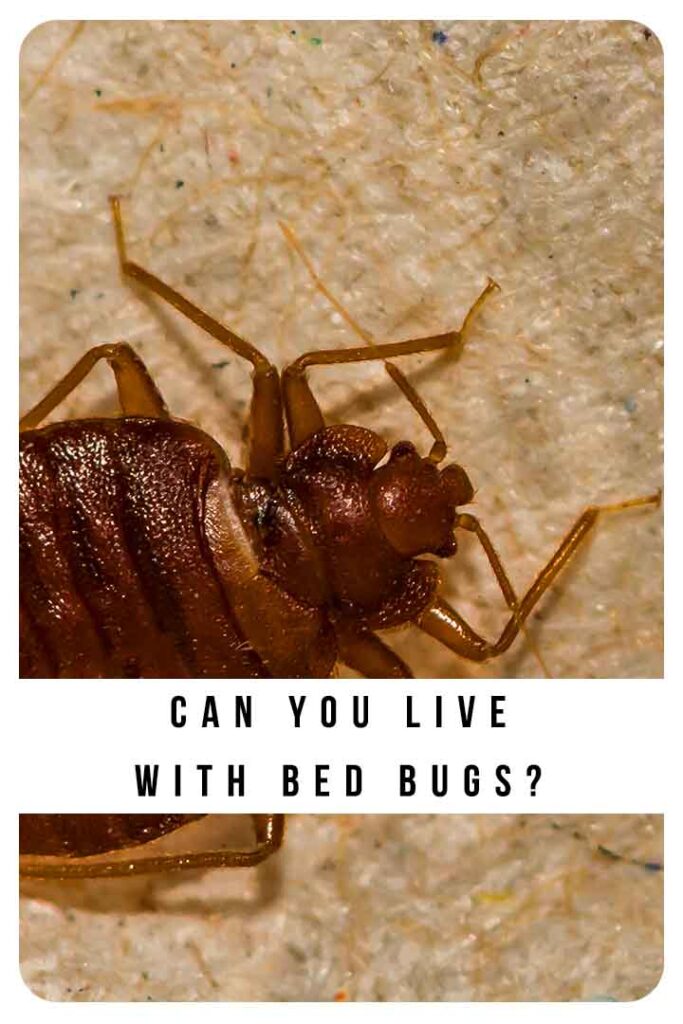
Bed bugs will bite you, even if you don’t notice it initially. These bites can be sore and itchy. And, as pest numbers increase whilst you leave them alone, your bites will only get more frequent and potentially more severe. These insects will bite anyone in your home to get blood, including your kids and guests. And, your guests could end up transferring the insects to their own homes.
Victims of these infestations have reported mental health problems as a result, because of stress trying to eliminate the pests, trouble sleeping, and constant itchiness. So, it’s not a good idea to just try living with bed bugs.
How Do Bed Bugs Get into the Home?
Many believe that bed bugs are only attracted to dirty conditions, but that is nothing more than a myth. In fact, these creepy crawlies can live in any environment so long as they are near the one source they need to survive – blood. However, unlike other blood-sucking insects such as mosquitoes and ticks, bed bugs cannot fly. So instead, they must hide and wait for their meal to become available.
Purchasing used furniture is one way these pests can enter our homes. Always inspect these items thoroughly before buying. Although you may have landed yourself a bargain, you may end up with a lot more than you intended!
Also, guests coming to stay with you may unknowingly bring bed bugs, leaving you with some unwanted guests! But perhaps the most common way you end up with bed bugs is through travel, particularly from staying in hotels.
Why Do Hotels Have Bed Bugs?
It is increasingly common for bed bugs to be in hotel rooms because you have an incredible number of people coming and going and all sleeping in one spot, giving these beasts plenty of blood to feast on!
As we know, bed bugs are notorious for hitching a ride, so if they have attached themselves to somebody’s suitcase en route to the hotel, they will jump onto the nearest bed on arrival. A healthy female bed bug can lay around five eggs per day, laying up to 500 eggs in her lifetime. So, a severe infestation can occur in a matter of weeks.
Checking your Hotel Room for Bed Bugs
You must inspect your hotel room for any signs of bed bugs before settling in. Place your luggage in the bathroom, as that is the least likely place for an infestation. Check the bed, sheets and blankets, the headboard, bed frame and box springs, along with any other furniture in the room.
Even if your hotel room appears bug-free, it is a good idea to check your luggage and clothing as soon as you arrive back home, washing and drying clothes on the hottest setting possible.
How Do I Know a Bed Bug Has Bitten Me?
Bed bug bites can take 14 days to develop on some people and can affect people differently, being typically slightly swollen and red, causing itchiness. You can treat bites with soap and water and a corticosteroid cream, but someone with an allergic reaction will require medical treatment.
How Do You Get Rid of Bed Bugs?
Leaving bed bugs untreated will escalate the problem as they continuously bite you, causing intense itchiness and leading to psychological conditions like anxiety, depression and insomnia. Bed bugs can survive without food for up to a year in a hospitable environment. So, how can you get rid of them?
First, remove any clutter around your bed and thoroughly vacuum your mattress, carpets, and where you have noticed these pests. Once finished, seal the vacuum canister’s contents in a plastic bag and throw it away. Wash and dry any infected linen, clothes and other textiles in hot water and on the highest setting on your washing machine and dryer. If you cannot wash an item, use steam to kill the bed bugs instead.
Although you can tackle the problem yourself, having a professional pest company exterminate the bed bugs is better. However, although extermination kills adults, it doesn’t always kill bed bug eggs, so follow-up treatments are needed to eliminate them. Increasingly though, exterminators are employing highly trained bed bug sniffer dogs who even recognize the scent of unhatched eggs.
Can You Just Live with Bed Bugs?
Nobody wants to live with bed bugs! If you do not have these pests eliminated from the home, they will continually bite you, leading to mental health problems caused by constant itchiness. Always check any used furniture you buy and inspect your hotel room to prevent bed bugs from potentially hitching a ride into your home!
Solving Other Pest Problems
Resources
- ‘How Bed Bugs Can Impact Your Health & What You Should Do’, Smithereen Pest Management Services (2019)
- Doggett, S. (et al), ‘Bed Bugs: Clinical Relevance and Control Options’, ASM Journals (2012)
- Ashcroft, R. (et al), ‘The Mental Health Impact of Bed Bug Infestations: A Scoping Review’, International Journal of Public Health (2015)
- Liu, B. (et al), ‘Using Social Media in Hotel Crisis Management: the Case of Bed Bugs’, Journal of Hospitality and Tourism Technology (2015)
- Pfeister, M. (et al), ‘Ability of Bed Bug-Detecting Canines to Locate Live Bed Bugs and Viable Bed Bug Eggs’, Journal of Economic Entomology (2008)

